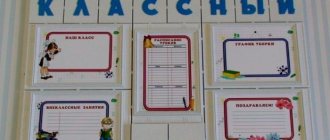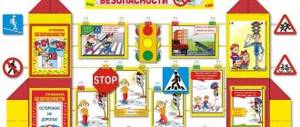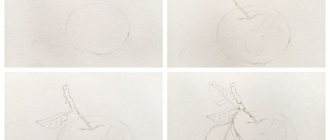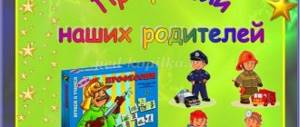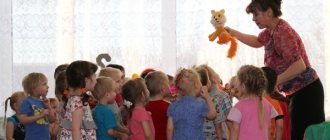Presentation “Interaction between preschool educational institutions and families to prevent school maladjustment”
#Federal State Educational Standards #Methodological developments #Extracurricular activities #Methodologist #Educator #Speech therapist #Speech pathologist #Preschool education
Department of Education of the Novocherkassk City Administration. Methodical office. August conference of educators. Section of educational psychologists and speech therapists. “Interaction between preschool educational institutions and families in order to prevent school maladjustment.” Prepared by: Onishchenko N.V. teacher-speech therapist MBDOU d\s No. 11
RELEVANCE Federal Law “On Education in the Russian Federation No. 273-FZ” (adopted on December 21, 2012, entered into force on September 1, 2013); Art.42. clause 2.clause 2. Corrective, developmental and compensatory classes with students, speech therapy assistance for students; Federal State Educational Standard for Educational Education "Procedure for organizing and implementing educational activities in basic general education programs - educational programs of preschool education (approved by Order of the Ministry of Education and Science of the Russian Federation of August 30, 2013 No. 1014); 1.6.pp.9. Providing psychological and pedagogical support for the family and increasing the competence of parents (legal representatives) in matters of development and education, protection and promotion of children’s health. 3.2. 1. paragraph 8. Support for parents (legal representatives) in raising children, protecting and promoting their health, involving families directly in educational activities. Action plan "Road map" "Introduction of the Federal State Educational Standard for Educational Education in preschool educational institutions of the Rostov region." 1.7. Interaction with parents on issues of the child’s education, involving them in educational activities.
ORGANIZATION OF ACTIVITIES Areas of activity Work with the preschool educational institution team to organize interaction with families, familiarize teachers with the system of new forms of work with parents Increasing the pedagogical culture of parents Involving parents in the activities of the preschool educational institution, joint work to exchange experience Principles of activity openness of the kindergarten for families (every parent is provided with the opportunity know and see how his child lives and develops) - creation of an active developmental environment, active forms of communication between children and adults, ensuring unified approaches to the development of the child in the family and in preschool educational institutions; cooperation between teachers and parents in the upbringing and correction of children’s speech; diagnosis of general and specific problems in the upbringing and development of the child (with the consent of the parents Content of the activity Result Improvement of work with parents in accordance with the requirements of the Federal State Educational Institution of Preschool Inclusion in the monitoring system of MBDOU in accordance with the requirements of the Federal State Educational Standard of Preschool Presentation of work experience within the preschool educational institution and at city events, disseminated. Experience on the Internet and the media Consultations, workshops Open individual and group lessons Exhibitions of games and aids Visual materials Joint leisure and holidays
The specifics of preschool childhood (flexibility, plasticity of the child’s development, the wide range of options for its development, its spontaneity and involuntary nature), as well as the systemic features of preschool education (the optional level of preschool education in the Russian Federation, the absence of the possibility of holding the child any responsibility for the result) make the demands unlawful from a preschool child of specific educational achievements and determine the need to determine the results of mastering the educational program in the form of target guidelines. The Program's targets serve as the basis for the continuity of preschool and primary general education. Subject to the requirements for the conditions for the implementation of the Program, these targets assume the formation of prerequisites for educational activities in preschool children at the stage of completing their preschool education. Correctional work is built taking into account the developmental characteristics and specific educational needs of children. It is necessary to build interaction with the families of pupils in order to achieve the full development of each child, to involve the families of pupils directly in the educational process.
The concept of “preparing a child for school” is a complex, fairly lengthy and systematic process of preschool education of a child in a kindergarten and family. Readiness for school includes the formation of prerequisites for educational activities: the child’s ability to focus on a system of rules in work, listen and follow instructions from an adult, work according to a model, etc., which characterizes the transition period from preschool to primary school age. It is these components of readiness for educational activities that are unfamiliar to many parents.
Teachers’ complaints about preparing children for school and areas of work to prevent written language disorders in kindergarten. Type of school difficulties: 1. Difficulties in forming a visual image of letters; 2. Difficulties in forming the correct line trajectory when writing; 3. The height of the letters does not correspond to the height of the working line, the letters are located higher; 4. Difficulty writing rounded details of letters and numbers; 5. Replacing letters, writing out unnecessary elements of letters and strokes; missing letters; perseveration of written letters, words and phrases; 6. Writing errors; inability to use rules when writing; 7. Slow writing pace. Directions of work at MBDOU: 1. Work on the formation of visual memory, visual-spatial perception; 2. Work on the formation of visual-spatial perception, visual-motor coordination, visual memory; 3. Work on the development of fine motor skills of the hand, hand-eye coordination and spatial concepts; 4. Work on the development of fine motor skills, hand-eye coordination, visual patterns of letters; 5. Work on the formation of visual-spatial perception and visual memory; 6. Work on the formation of sound-letter analysis and phonetic-phonemic perception; 7. Work on the formation of visual-motor coordination, fine motor skills of the hand, voluntary control of movements, and improvement of sound-letter analysis.
Results of a diagnostic examination of parents of MBDOU. 97% participated in the diagnostic examination. parents (47% - have a fairly high level of motivation in relation to cooperation with preschool specialists; 29% of parents do not have the proper level of motivation in relation to cooperation with preschool specialists; 34% of parents, during the survey, expressed the opinion that speech and other problems of their children “will go away on their own "Areas of work: Involvement in activities: -joint leisure, holidays, participation in the preparation and conduct of speech festivals -organization of open classes with the participation of parents; presentation of the experience of family education development and implementation of joint projects. Educational work: -advertising activities to familiarize with content of MBDOU activities - consultations and workshops; - organization of exhibitions of games and card files of exercises for working with children, mini-libraries; display of open subgroup and individual classes; Design of folders, speech therapy corners, etc. Familiarization with work experience: - advertising activities; -familiarization with the work experience of parents who take an active part; -consultations and seminars; newsletter, stands with visual material, display of open classes.
The tasks facing MBDOU in working with families at the stage of preparation for school: Improving communication tactics, the level of professional skills, communicative culture and skills of interaction between teachers and specialists of preschool educational institutions with the child’s family; Increasing the psychological and pedagogical competence of parents on raising a child in a family environment; Providing educational services to parents who have problems in relationships with children, as well as propaedeutic educational work. Involving parents in correctional and educational work.
Blocks of interaction between teachers and parents. Educational Practical Individual conversations: ☺ “Finger play training”; ☺ “Speech games and exercises”, etc. Questioning (diagnosis of family upbringing conditions, family characteristics) Consulting: ☺ “Does your baby speak poorly?”; ☺ “Developing a child’s speech at home,” etc. Parent meetings Information stands: ☺ “Reading a fairy tale to a child”; ☺ “Small folklore genres in the formation of speech culture”, etc. Posting information on the Toy Library website: ☺ “Home Toy Library”; ☺ “Finger games for children 4-5 years old”, etc. Libraries for parents: ☺ “Preparing your hand for writing”; ☺ “School of Skillful Penciling”, etc. Notebooks for independent work Master class: “Prevention of reading and writing disorders in children with speech disorders” Trainings: “Games and exercises for the development of finger movements”; Open classes with the participation of parents: “Development of fine motor skills in children with speech impairments”
The joint work of a speech therapist with parents is an integral part of the entire pedagogical process and is carried out in the following forms:
Non-traditional forms of communication with parents:
Results of final diagnostics. 98% of parents took part in the final survey. 95% of parents have a high level of motivation regarding cooperation with teachers and preschool specialists; 93% are concerned about their children's speech development; 2% of parents have a low level of motivation regarding cooperation with teachers and preschool specialists; 0% of parents are not concerned about their children’s speech disorders.
